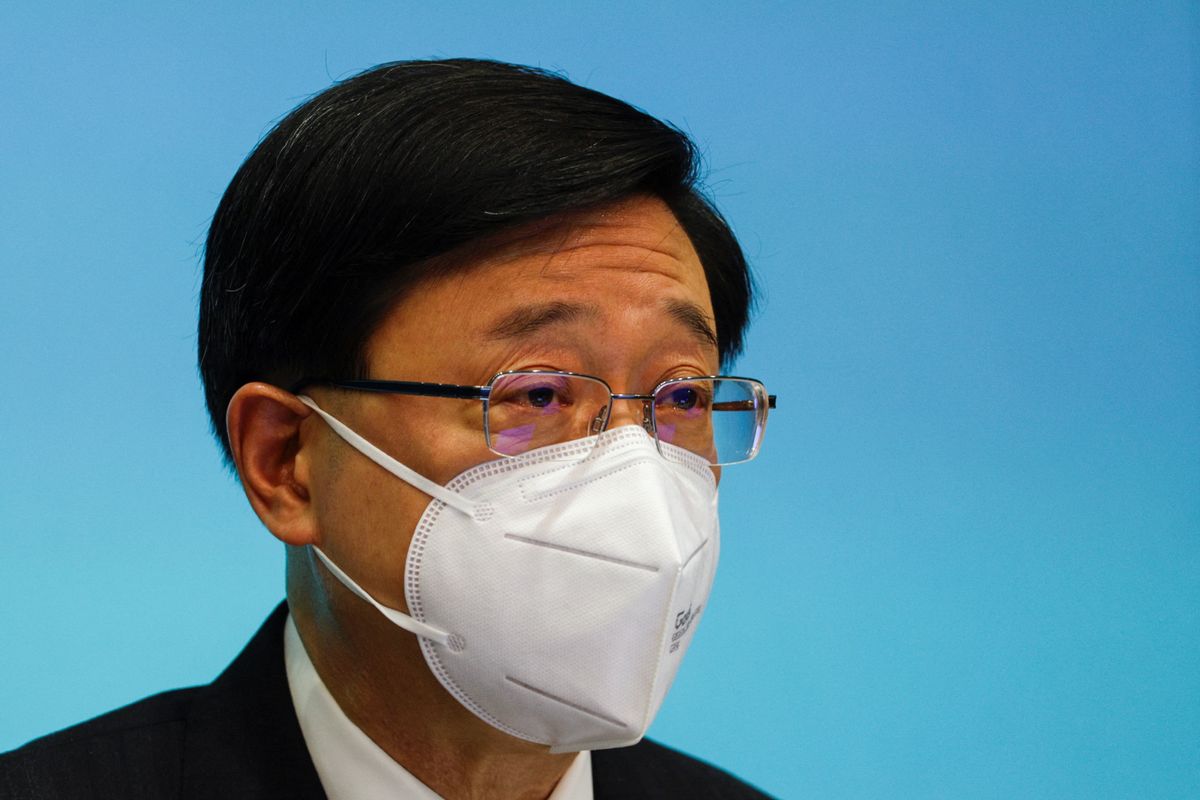Hong Kong’s Lee suggests “reverse quarantine” for China travel

A few minutes every morning is all you need.
Stay up to date on the world's Headlines and Human Stories. It's fun, it's factual, it's fluff-free.
In Hong Kong, there’s been lots of economic pressure to reopen the city and lift restrictions, but there’s also the threat of rising COVID cases if that happens too soon. Right now, it’s looking like Hong Kong’s economy will contract for the third time in four years. And in mainland China, the COVID-zero policy has led to the nation’s GDP only growing by 0.4% in the second quarter, year on year.
Yesterday, Hong Kong’s Chief Executive John Lee publicly introduced the idea of “reverse quarantine” with the mainland. For Hong Kong, this would mean opening up travel to the neighboring tech hub city of Shenzhen after months of restrictions. Basically, Hong Kong residents would quarantine in Hong Kong before going to China’s mainland so they can avoid China’s 7-day hotel quarantine with three days to follow at home. This policy would create regular, safe travel between the two and help reduce the load on mainland hotels. Plus, mainland Chinese officials support the idea. With a task force still figuring out the details, the reverse quarantine idea isn’t in place just yet. But we could be seeing an agreement soon. Meanwhile, there is chatter from some anonymous sources that the city is targeting to end mandatory hotel quarantine for international travelers. While nothing has been set in stone yet, according to the source, it’ll come down to case count, deaths and public perception.
Key comments:
“The main purpose is to first of all alleviate the burden of hotels in the mainland. The second goal of this proposal is to ensure that we will have a system to allow a regular flow of people from Hong Kong into Shenzhen,” Lee explained.
“The quarantine in Hong Kong should also follow mainland standards. For example, nucleic acid testing should be carried out every two days or even every day," The Democratic Alliance for the Betterment and Progress of Hong Kong’s Edward Leung Hei said.
In a statement, a Hong Kong government spokesman said, “the Government’s overall anti-epidemic policy is maintained according to the following five points:
(1) Not to “lie flat" and to continue to contain the number of confirmed cases, better manage risks and enhance our capability to respond to contingencies in order to prevent the healthcare system from overloading;
(2) To reduce critical cases and deaths;
(3) To protect high-risk groups, including the elderly, the young and patients with chronic illnesses;
(4) To differentiate people into different risk levels precisely and scientifically for proper control, and to reduce the number of people and areas placed under control so as to allow maximum numbers of daily activities and participants involved; and
(5) To strike a balance between risks and economic impetus, safeguarding the livelihood of the public and Hong Kong’s competitiveness on the premise of proper risk management."




Comments ()